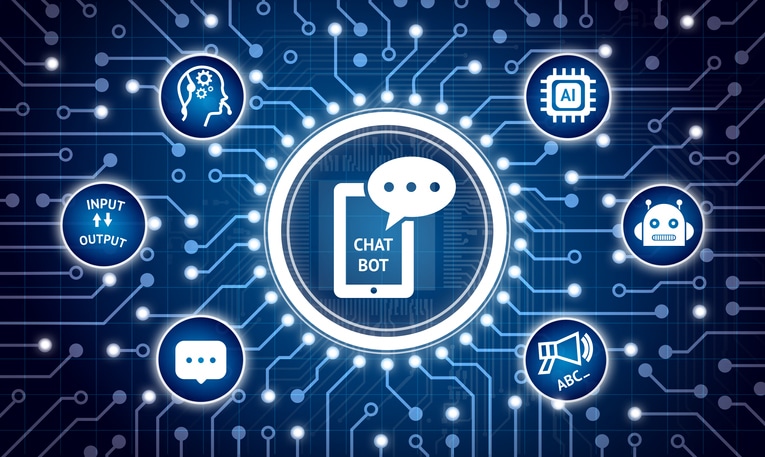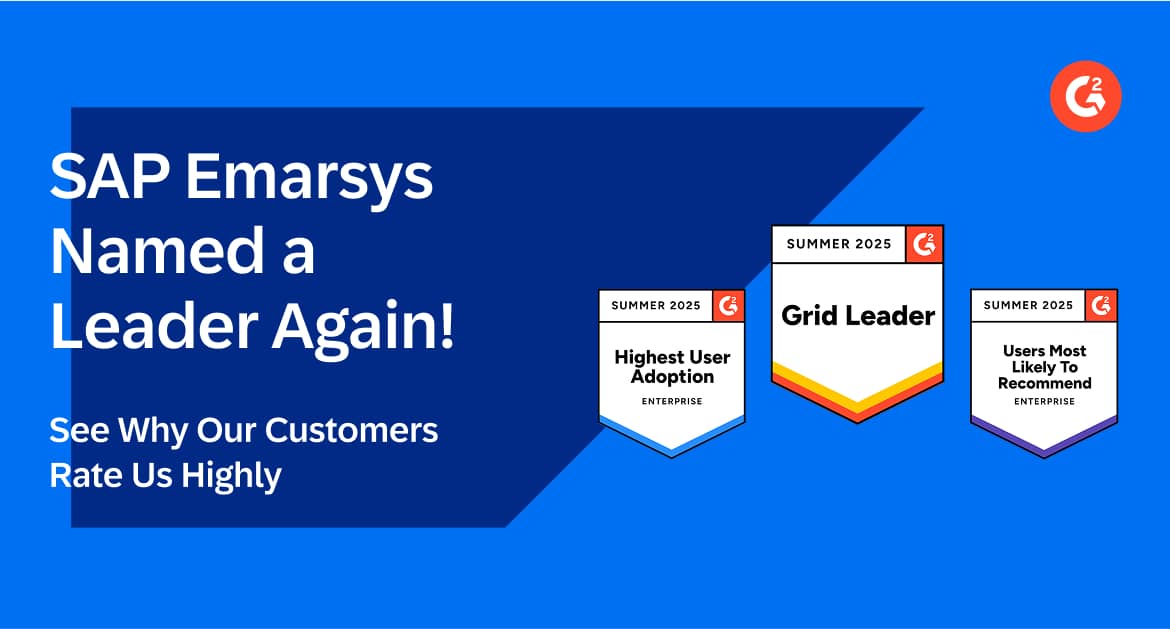The evolution of big data and advanced analytic solutions have made it possible for marketers to build a clearer picture of their target audiences than ever before; and in this hotbed of advancement lies artificial intelligence (AI) marketing. Using data and customer profiles, AI tools learn how to communicate with your customers, and deliver personalized messaging at the right time without the need for human intervention or assistance from marketing team members.
What is AI Marketing?
Artificial intelligence marketing (AI Marketing) is a method of leveraging customer data and AI concepts like machine learning to anticipate your customer’s next move and improve the customer journey.
Armed with big data insights, digital marketers can greatly boost their campaigns’ performance and ROI, all of which can be achieved with essentially no extra effort on the marketer’s part. While this definition provides an overview of artificial intelligence marketing at the most basic level, there is obviously much more that goes into it. We’ll be addressing all of the details in the content to follow.
Core Elements of Artificial Intelligence Marketing
Artificial intelligence marketing solutions offer ways to bridge the gap between data science and execution. The process of sifting through and analyzing huge dumps of data was once an insurmountable process and is now not only feasible, but it’s actually easy.
Let’s think about all of the new technologies that have hit the market in the past year or so. We’ve all heard about the iPhone 7, Google’s driverless cars, Snapchat Glasses, and even Elon Musk’s ‘city on Mars’. What about marketing-specific technologies though?
There are a few key elements that make the adoption of AI marketing as important as it is today, including big data, machine learning, and the right solutions.
Big Data
Big data is a pretty straightforward concept. It refers to a marketer’s ability to aggregate and segment large sets of data with minimal manual work. Marketing teams can then use this data to ensure the right message is being delivered to the right person at the right time, via their channel of choice.
Machine Learning
Machine learning platforms come in handy when marketers try to make sense of this huge data repository. They can help identify trends or common occurrences and effectively predict common insights, responses, and reactions so marketers can understand the root cause and likelihood of certain actions repeating.
Powerful Solutions
Artificial intelligence marketing solutions truly understand the world in the same way a human would. This means that the platforms can identify insightful concepts and themes across huge data sets, incredibly fast. AI solutions also interpret emotion and communication like a human, which makes these platforms able to understand open form content like social media, natural language, and email responses.
➤ Learn more about how the Emarsys AI solutions can help you grow your business.
AI Marketing Challenges
Artificial intelligence tools are still in the early stages of development. That means many marketing teams may be unaware of the best way to integrate AI marketing into their operations or how to use the solutions at all. This introduces challenges that marketers must be aware of as they implement these solutions:
Getting Organizational Buy-In
Stakeholders may be unaware of the value that AI investments could bring the business. Marketing teams must be able to measure qualitative value of AI investments and note performance improvements surrounding customer experience and brand reputation.
Navigating Deployment Issues
As marketing teams set forth with their AI deployments, it is imperative that they understand deployment best practices for the specific solution they plan to implement. This will require organizations to set aside time for team member training and calls with deployment specialists.
Ensuring Data Privacy
Organizations must comply with data privacy regulations like GDPR and CCPA or risk considerable penalties. This means marketers need to make sure they practice ethical data usage. These laws can introduce challenges to AI deployments – if tools are not programmed correctly to abide by these guidelines, they may risk non-compliance with data privacy laws
Core Benefits of Artificial Intelligence Marketing
So what does this mean for marketing teams? AI marketing has been gaining more attention among marketers because of the insights it provides. According to a recent PwC study, 72% view AI as a “business advantage.”
Let’s review some ways that marketers can expect real AI to influence marketing outcomes in the upcoming months and years:
Increased Marketing ROI
Marketers can leverage AI to transform their marketing campaigns by using data insights and acting on them in real time. AI platforms are able to make intelligent decisions on how to allocate funds across channels, analyze high-performing ad placements, and increase value for the marketing program. Using intelligent budget allocation and spending rules, if used correctly, AI platforms will improve marketing ROI.
Personalized Content Delivery
With AI, marketers can take data and targeting to a whole new level. Audience analytics can go past the typical demographics level, to understand people on an individual basis. Now, marketers can use AI to both identify potential clients or buyers, and deliver the ideal content that’s most relevant to them. This can be especially helpful in driving retail and e-commerce impact. With big data, machine learning, and AI combined, there is little a savvy marketer can’t achieve.
Improved Campaign Reporting and Measurement
It can be difficult to aggregate and analyze the large amounts of data that today’s marketing campaigns produce. This makes it hard for marketers to report on and prove campaign successes. Marketers can utilize AI-enabled dashboards to gain a comprehensive view into the campaign elements that work, replicate those patterns, and adjust campaigns accordingly to see increased success across campaigns. In addition to smart campaign analytics, these tools also enable enhanced reporting insights.
Enhanced Marketing Team Performance
AI can conduct data analysis much faster than humans. Let artificial intelligence solutions tackle the time-consuming tasks and free up time for your marketing team to focus on what matters – strategy. With AI, marketers can use real-time analytics to make better campaign decisions and improve overall performance.
Examples and Use Cases for Artificial Intelligence Marketing
Artificial intelligence can be used for a number of different reasons including campaign performance, customer experience, and marketing efficiency. These improvements can be realized in a multitude of ways including:
Personalized Messaging
With AI, marketers can realize improved personalization and messaging success. Often marketers can have trouble determining where to and when to place advertisements and can struggle with figuring out what content to deliver individuals. Artificial intelligence enables programmatic advertising to help organizations place bids on ad space that is relevant to their target audiences in real-time. This coupled with message tracking and analytics capabilities allows marketers to send customized messages to users based on their preferences using the right content, in the right place, at the right time.
Smarter Ads
Marketers are already dipping their toes into smarter ads, with account-based marketing solutions, but AI helps teams take this a layer further for truly insightful analysis. With a new abundance of data available, online ads can become smarter and more effective. AI solutions can dig deep into keyword searches, social profiles, and other online data for human-level outcomes.
More Intelligent Searches
As advanced technology solutions grow smarter, it’s important to remember that audiences are becoming smarter as well. Thanks to social media and rapid-fire search engines (thanks Google!), people find what they are looking for faster than ever before. AI and big data solutions can actually analyze these search patterns and help marketers identify key areas where they should focus their efforts.
Relying on Chatbots
Customer service and retention is another area where AI will play a huge role in the future. Many chat functions and other direct-to-consumer engagement avenues are already being run by AI bots. Companies can save employee time and expenditures with these tactics. AI bots also have access to an entire internet’s worth of data, information, and search histories, making them much more efficient than their human counterparts.
Continued Learning and Predictive Analytics
Not only can AI be used to uncover once-hidden insights, it can actually be taught and learn to incorporate previously uncovered insights into new campaigns, optimizing outreach to target only the most relevant users. Over time, these AI solutions will become even more intelligent, effectively eliminating waste, greatly increasing conversions, and promoting real-time decision-making for proactive marketing
Artificial Intelligence is the Future of Marketing
Does this all sound too good to be true? Are you still thinking that artificial intelligence is tomorrow’s technology, not today’s? Well, we’ve got news for you: the creative minds here at Emarsys are already implementing innovative, artificial intelligence marketing solutions. Using advanced machine learning algorithms, we are continuing to innovate with AI solutions that can take over most of the tedious and time-consuming tasks that marketers struggle to deal with.
Want to learn more about the technology that is powering some of the most engaging marketing strategies across the globe? Request a demo.












